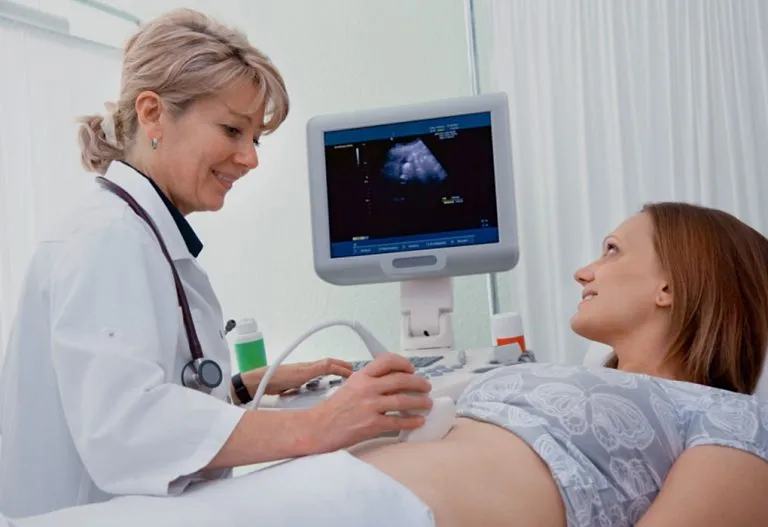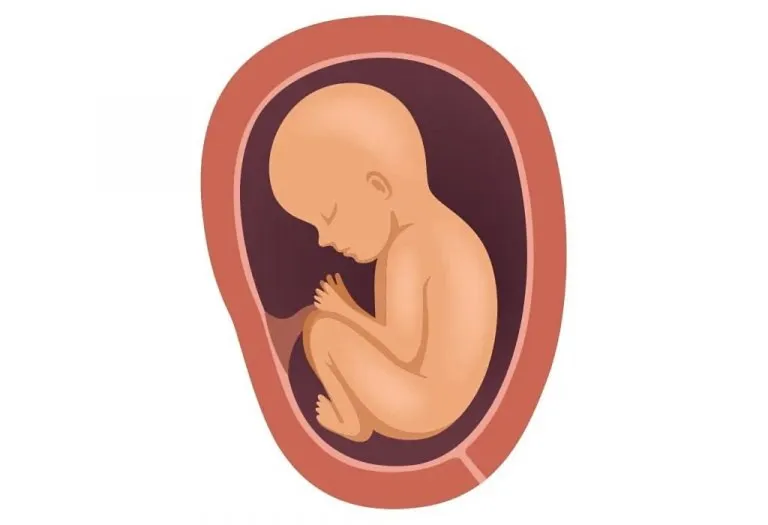Accuracy of Pregnancy Ultrasound to Predict the Due Date
All pregnant women look forward to knowing their due date. The 40-week countdown is a long wait period, but they look forward to the day they can hold their little angels in their arms. Your gynaecologist would deduce the due date by simply calculating the last day of the previous period. However, a pregnancy ultrasound is another way of predicting the due date. It gives a closer look into the development of the foetus and can also help calculate the expected delivery date (EDD), which has become very helpful for obstetricians nowadays, especially when the menstrual history is unknown.
But how accurate is the ultrasound due date? Read on to learn about the accuracy of the due date based on ultrasound and more factors concerning EDD in this article.
Can Your Pregnancy Ultrasound Determine Your Due Date?
A pregnancy ultrasound gives the expecting mother an idea about the tentative delivery date. As mentioned earlier, the due date, calculated from the last menstrual cycle, often does not match the due date calculated by ultrasound. The accuracy of the due date by ultrasound depends on several factors, such as the current stage of pregnancy, the quality of the machine, and the position of the baby in the mother’s womb. Therefore, it is safe to say that the accuracy of the ultrasound decreases as the pregnancy progresses. Hence, ultrasounds cannot be 100 per cent correct and reliable (4).
When Should You Have an Ultrasound Scan to Determine the Due Date?
An ultrasound can help determine how far you’ve reached in your pregnancy, but only to some extent. Gynaecologists can predict it through ultrasound imaging six weeks after the pregnancy has been confirmed. One should bear in mind that as the pregnancy progresses, there can be a large gap between the expected date of delivery predicted by ultrasound and the actual delivery date (5).
Why Is an Ultrasound Scan Needed to Determine the Due Date?
Women who want to be sure of their delivery date cannot rely entirely on the manual cervical check (a manual check done by the doctor to feel the softness and length of the cervix with the finger) to determine the delivery date, as it only indicates labour. Doctors find it more suitable to conduct a pelvic examination to assess the cervix and the passageway, which opens up and reveals if labour is possible when she is nearing the due date. In case of cervical incompetence, an ultrasound is done. The changes that start happening in the cervix are internal and not external. Therefore, transvaginal ultrasounds can help reveal the shape of the cervix and indicate whether the process of confinement has started. Also, estimating the due date more closely helps doctors make medical decisions for the health of the mother and the baby.
How Accurate Do Ultrasound Scans Predict the Due Dates?
Pregnant ladies these days get frequent ultrasound scans done as it is a safe way to know the measurement of the cervix (the passage that makes way for the baby to be delivered). The scans also help the gynaecologist deduce whether the patient will be in labour soon. Plus, ultrasound is painless and risk-free, and seeing the baby on the screen is also an enjoyable experience. Though all gynaecologists give a due date, it is just a tentative date. Very few women deliver their babies on the expected due date. Hence, the accuracy of the due date by ultrasound is not always absolutely correct either. The estimated due dates calculated by pregnancy scans are sometimes incorrect even though the technicians are experts in their field.
Can Your Due Date Change During Pregnancy?
Early ultrasound has a negligible margin for error while determining the due date. Generally, gynaecologists have no way of knowing the exact time of conception. Therefore, pregnancy is calculated from the very first date of the last menstrual period. The doctor may change the due date based on the result of the first ultrasound, which is fairly reliable. In most cases, the date differs by more than a week, and it mostly occurs in the first trimester. If consecutive ultrasounds show consistent progress of the foetus with no indication of any problems, then there is no reason to worry if, for some reason, the doctor changes the due date.
Do Scans in Early Pregnancy Predict the Due Date More Accurately Than the Scans in Later Pregnancy?
It has commonly been observed that each ultrasound shows a different due date throughout the pregnancy. Early pregnancy scans are more accurate than the latter ones for predicting the due date (2). Therefore, doctors refer to the dates and measurements predicted on the first ultrasound. If an ultrasound is done between 18 and 28 weeks of gestation, the margin of error can increase to one or two weeks (minus or plus). As the baby grows, it becomes harder to predict the expected due date accurately. So, ultrasound measurements are not conducive in the later stages of pregnancy. A better estimate of due dates can ensure a safer delivery.
Which Due Date Is More Accurate – LMP (Last Menstrual Period) or Ultrasound Scan?
Here’s an answer to your question: which predicts the accurate due date, ultrasound or LMP? During the first 20 weeks of pregnancy, the initial ultrasound is most accurate in determining the gestational age of the fetus. The due dates estimated through early ultrasounds carry an approximate error margin of 1.2 weeks. Typically, if the due date estimated from the ultrasound falls within this margin of error, doctors tend to retain the original due date calculated based on the last menstrual period’s date.
For women unsure of their last menstrual period date, a due date predicted through an early ultrasound can be taken. This approach is beneficial when menstrual cycles exhibit irregular patterns.
Predicting the due date on LMP depends on how regular your menstrual cycle is. LMP may differ when the body is stressed or affected by minor or major illnesses. Also, the method adopted by “pregnancy wheels” to calculate the estimated due date based on the LMP is done by adding 280 days to the first day of the last menstrual period (3). If the date is unknown, using LMP to establish the date can overestimate the duration of pregnancy.
Thus, the due date predicted with ultrasound is different from the one based on LMP. The ultrasound assessment is comparatively accurate in most cases, especially when the scans are done between six and ten weeks. Decisions based on third-trimester sonography could be problematic. The gynaecologist would then require closer monitoring to deduce the expected delivery date, which often is useless as the date seldom matches (1).
FAQs
1. Are there situations where ultrasound cannot determine the due date?
Occasionally, factors such as poor image quality, fetal positioning, or excess amniotic fluid can make it challenging to obtain precise measurements, affecting the accuracy of the due date prediction.
2. Is there a difference in accuracy between abdominal and transvaginal ultrasounds for dating pregnancies?
Transvaginal ultrasounds are generally more accurate in early pregnancy due to their proximity to the uterus and clearer images they provide, compared to abdominal ultrasounds, which may be less precise due to factors like maternal body habitus.
There isn’t a reliable method to tell exactly when a baby will be delivered. The calculation of the date of conception is just an estimated date. The world of pregnancy and childbirth has been revolutionised with many scientific advances. In assisted reproductive procedures, the calculations can be done accurately, but that is not the case for natural conception. An optimal way to determine the gestational age is through ultrasound scans during the first trimester. Thus, ultrasound can be a key tool for determining the estimated due date and confirming the foetus’s health.
References/Resources:
1. Mongelli. M, Wilcox. M, Gardosi J; Estimating the date of confinement: Ultrasonographic biometry versus certain menstrual dates; American Journal of Obstetrics and Gynecology; https://www.ajog.org/article/S0002-9378(96)70408-8/fulltext; January 1996
2. Methods for Estimating the Due Date; The American College of Obstetrics and Gynecology; https://www.acog.org/clinical/clinical-guidance/committee-opinion/articles/2017/05/methods-for-estimating-the-due-date#; May 2017
3. When LMP and Ultrasound Dates Don’t Match: When to Redate?; ObG Project; https://www.obgproject.com/2023/01/02/accurate-ultrasound-pregnancy-dating/
4. Taipale. P, Hiilesmaa. V; Predicting delivery date by ultrasound and last menstrual period in early gestation; PubMed; https://pubmed.ncbi.nlm.nih.gov/11165580/#’
5. Morgan. J. A, Cooper. D. B; Pregnancy Dating; National Library of Medicine; https://www.ncbi.nlm.nih.gov/books/NBK442018/
Also Read:
Reverse Due Date Calculator
How to Calculate Pregnancy Due Date?
When Can You See a Baby on an Ultrasound Scan?
Was This Article Helpful?
Parenting is a huge responsibility, for you as a caregiver, but also for us as a parenting content platform. We understand that and take our responsibility of creating credible content seriously. FirstCry Parenting articles are written and published only after extensive research using factually sound references to deliver quality content that is accurate, validated by experts, and completely reliable. To understand how we go about creating content that is credible, read our editorial policy here.



































